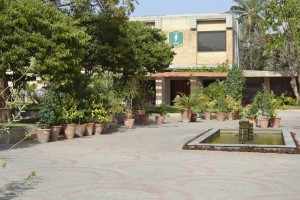Hello Everyone!
I am answering question number seven.
Digital literature is a huge deal these days. There are blogs, online publications, video blogs (vlogs), twitter, online newspapers, and things like Facebook posts. Its interesting to see all of these stories, ideas, and thoughts being automatically transferred to the world wide web for widespread readership lacking formal editing and publication. Its a strange thought. I grew up in a house full of books, often rooms had so many books the bookcases overflowed and we had to make mazes in between the piles of books on the floor in order to access the rooms. I feel strange thinking about stories and literature being accessed through a tablet versus a chunk of paper and glue and ink. Social media tools like WordPress and YouTube and things like Facebook and Twitter are all ways of bypassing the paper and ink of old days. While reading Chamberlin’s book I felt confronted with the idea that perhaps this use of social media to share words, thoughts, and stories was almost like a reversal to an oral culture of stories. They go directly from one person to the next, without being edited or changed, without changing language in some cases and through an easily accessible database. Due to distance and travel its not always possible for a thought or idea from North America to reach South East Asia, for example, but a blog post can reach quit easily and encompass so much distance in a single click. Social media, for me, seems like the reemergence of an oral culture. Chamberlin also talks about stories, and the differences within them, help us understand other people even with the differences. While reading further into the novel I was confronted with the idea that all of this, strangely, reminded me of a scene from the 2013 film Star Trek: Into Darkness and specifically the opening scene where the characters accidentally change the future of a civilization. This idea, of changing the original trajectory of a society, is evocative of the idea of how imperialism changed the original trajectory of evolution of societies all over the world. I find it, interesting, that a series set so far in the future is attempting to teach, instill, and force humans to realize that interfering in another culture/people/society/planets original trajectory of evolution is a bad idea.
A link you may find interesting is this comic about Bartolome de las Casas.
Another aspect of online media is hyperlinks. It is a backstory almost. I was reading an article online the other day, about how Facebook is the Star Trek villain the ‘Borg’, and part of the article was an extension of a hyperlink. In order to understand the disclaimer at the end one had to click the hyperlink and think about article almost within the original article. The idea of the hyperlink is like giving an individual a story, telling them a story, and then saying hold on, wait here for a second, and bringing in a second person to give another mini-story to explain one sentence. After the mini story the original storyteller steps back in, pushes the other away, and restarts the original story. Hyperlinks are all about stories within stories within stories, it is like one of those Russian dolls, opening one only leads to another doll and another doll and another doll until one finally ends up with a single fact or idea. Everything leads back to a single thought, it is like branches of a tree and the final hyperlink’s destination are the roots, and they have their own meaning.
